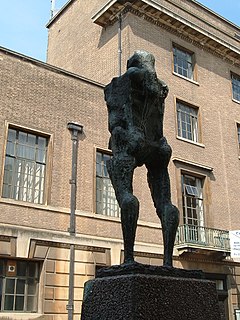A Quote by Lord Byron
The castled crag of Drachenfels, Frowns o'er the wide and winding Rhine, Whose breast of waters broadly swells Between the banks which bear the vine, And hills all rich with blossom'd trees, And fields which promise corn and wine, And scatter'd cities crowning these, Whose far white walls along them shine.
Related Quotes
I respect not his labors, his farm where everything has its price, who would carry the landscape, who would carry his God, to market, if he could get anything for him; who goes to market for his god as it is; on whose farm nothing grows free, whose fields bear no crops, whose meadows no flowers, whose trees no fruits, but dollars.
I am a frayed and nibbled survivor in a fallen world, and I am getting along. I am aging and eaten and have done my share of eating too. I am not washed and beautiful, in control of a shining world in which everything fits, but instead am wondering awed about on a splintered wreck I've come to care for, whose gnawed trees breathe a delicate air, whose bloodied and scarred creatures are my dearest companions, and whose beauty bats and shines not in its imperfections but overwhelmingly in spite of them.
The luckiest person in the world is somebody who is born into a small, shabby-genteel town on a major railway connection with 24,000 souls and a bird sanctuary and whose grandfather owns a farm and whose father owns a business -whose family is mildly prosperous but not rich, which means you can leave the town.
You should look at certain walls stained with damp, or at stones of uneven color. If you have to invent some backgrounds you will be able to see in these the likeness of divine landscapes, adorned with mountains, ruins, rocks, woods, great plains, hills and valleys in great variety; and expressions of faces and clothes and an infinity of things which you will be able to reduce to their complete and proper forms. In such walls the same thing happens as in the sound of bells, in whose stroke you may find every named word which you can imagine.
I call worldly or earthly those whose minds and hearts are fixed on a tiny portion of this world they live in, which is our earth; who respect and love nothing beyond it: people as limited as what they call their property or their estate, which can be measured, whose acres can be counted, whose boundaries can be shown.
One can only repeat about air warfare: we are in a position of almost hopeless inferiority and must grin and bear it as we take the blows from the English and the Americans. [Germans in the bombed cities] are gradually beginning to lose their courage. Hell like that is hard to bear for any length of time, especially since the inhabitants along the Rhine and Ruhr see no prospect of improvement.




































